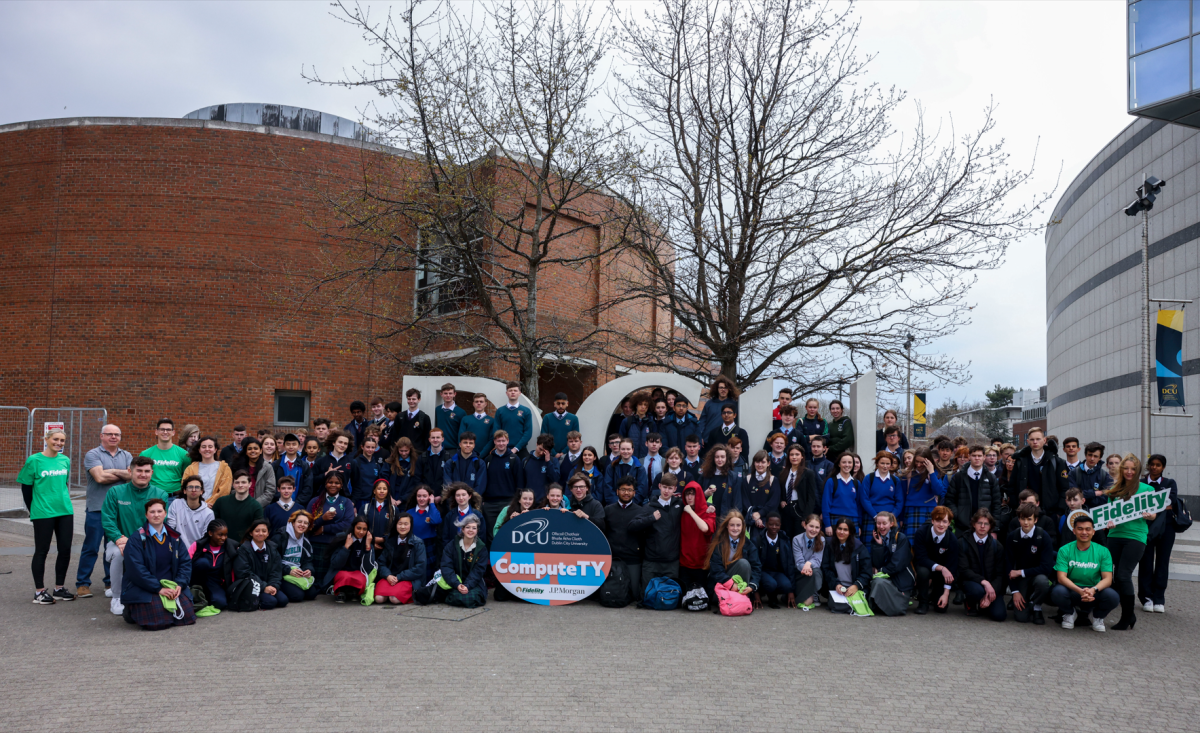

ComputeTY: Coding Camp at DCU
The DCU School of Computing has run this annual coding camp for transition-year students for the past 18 years. The programme has enabled the School of Computing to educate secondary school students, who may not have previously been exposed to the world of computing, to encourage them to pursue a career or further study in STEM. To date, over 5,000 secondary school students have completed the ComputeTY programme from counties including Cork, Meath, Louth, Kildare and Dublin.
During the week, students were divided into three laboratory groups and each group was given three awards. The student who excelled in the Python Programme Competition received an award, while another student was recognised with a BBC Micro:bit Competition Award. Additionally, a Merit Award was given to the student who excelled throughout the week in terms of work-ethic, curiosity, and participation.
DCU were able to run this programming camp thanks to the continued support of our sponsors Fidelity Investments and J.P. Morgan’s ‘STEP Up in STEM’ initiative. Without the support of these organisations, running a programming camp of this scale would not be possible. More than 150 transition-year students were able to take part in our one-week programming camp with over 30 students attending from DCU Access schools.
The DCU Access programme - Ireland’s oldest and largest University Access Programme - provides equal access to higher education and supports progression through and beyond DCU for groups affected by economic and social adversity.
Lorna Martyn, Fidelity Ireland’s Region Chair commented
As a business we are committed to inclusion through education. Our longstanding sponsorship of the Compute TY programme is one of many strategic interventions to foster a diverse talent pipeline for the future by providing students exposure to STEM subjects and careers.
This year, we are once again impressed by the enthusiasm and engagement shown by the students who participated in the programme, and we hope they are inspired to consider STEM subjects in their future studies.





















